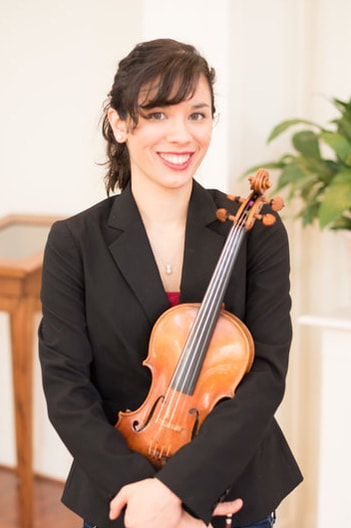When creating strategies for teaching or for learning, I like to start from my desired end-result and work backwards.
The goal: Students who practice effectively on their own without reminders, who keep track of their own lesson schedules and performances, and who take responsibility for communicating clearly and openly with their teacher.
So, how do we get there?
1. Help the students create identities as violinists, have them take ownership, immerse them in musical culture, and find a musical community for them to participate in so that they are motivated and enthusiastic. My previous entries in this series focus on these steps.
2. Talk to your private teacher about starting to divide the practice time - have certain things that the child practices alone and certain things for which they still need parental supervision. I recommend starting this between the ages of 8 and 10, depending on the child. For a student who has started to resist parent-directed practice, having the teacher officially appoint the parent as the Watcher Of The Tall Violin or the Curvy Pinky or the Memory Checker can sometimes ease the tension, especially if they know their parent won't be bothering them about other items on their practice list.
3. Alternate days of practice - parent-directed one day, student-directed the next. Gradually reduce the number of days the parent is involved at a pace comfortable for the student until the student is practicing by themselves every day. As the parent-directed practice gets phased out, they can still gently remind the student to practice and assist the student in finding the best time to practice.
4. Make sure to comment positively whenever a student works through a problem on their own, practices without being reminded, or takes initiative in their practice. Parents should ask the students questions to help them identify and solve problems, and praise them when they create a solution. Questions they might ask are, "What did you hear? What did you like? What could be better? Do you think it sounded the same, better, or worse than the last time you played it? What can you do to make it sound more beautiful?" Especially if a student struggles with a difficult concept or task and pushes through, they should be praised for their tenacity. I always try to point this out in my students' lessons - "I really liked how you heard that the note was out of tune and checked with your open string to find the right intonation - that's a good strategy for fixing that!" If parents and teachers can help students feel confident in their own ability to make progress, they will be much more inclined to practice independently.
5. As the parent pulls back from actively directing the practice, make sure to still let your child know how important their music is to you. Ask them how their practice session went, comment on something you heard that went particularly well, take them to concerts and make sure to attend all their concerts. Check in with them about their relationships with their private teachers, orchestra directors, and chamber coaches to make sure they're still in the best learning environment for them.
6. Around the ages of 12 - 13, the parent should stop sitting in on the lessons with their child. The student is now responsible for taking notes during the lesson. This is where video recording the lesson can be a wonderful tool, as the student becomes accustomed to taking notes and learning what is important to remember. This can be a gradual transition, again - one lesson with the parent, one lesson without. It will depend on the student and on the parent. Some may be able to go cold turkey, while others may need a slower rate of change.
7. Once the student is in high school, they should assume responsibility for all communications with their teacher. If they have a scheduling conflict and need to find a time for a makeup, they should be the one to email their teacher - not the parent (although it is good to always copy the parent on emails so everyone is on the same page). At this point, parents should not attend the lesson at all.
8. Keep in mind that even teenagers frequently have to be reminded to clean up after themselves and to do their homework - it's natural that students of all ages will still need to be reminded to practice from time to time, and that is okay. However, if the student never wants to practice, it's time for some extra motivation and it can be good for the parent to check in with the teacher to see what strategies can be employed.
I started this blog series because I frequently get questions from parents about how to get their kids to practice and they inspired me to sit down and really think about what does motivate someone to practice. I hope you've found some useful tips in this series. Please comment and let me know how these suggestions are impacting your practice - or let me know of other strategies you've used to motivate your students!
Thanks for reading!

 RSS Feed
RSS Feed